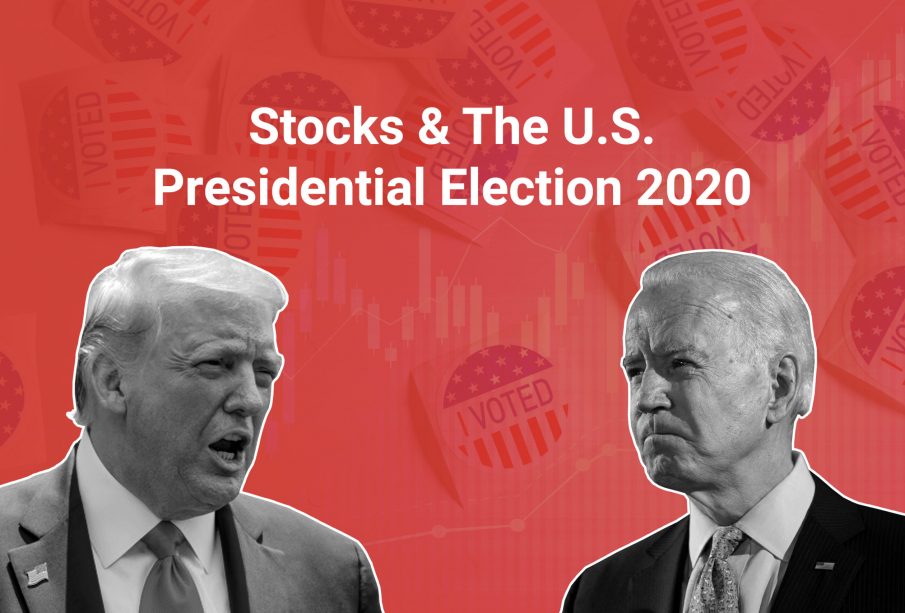30 Asia-based Market Strategists Reveal How They’re Playing The U.S. Election

7 Sin Stocks to Purchase Today For Appealing Dividends What Donald Trump Tweeted After Kamala Harris and Mike Pence Clashed in First VP Dispute 30 Asia-based market strategists reveal how they’re playing the U.S. election
- CNBC asked 30 strategists a series of concerns about the U.S. election and their present investments, providing them privacy in exchange for their views.
- The Asia-based investors were dramatically divided on the outcome of the election.
- The investors recognized their preferred kinds of properties as they hedge their market positions.
SINGAPORE– Stock market experts in Asia plainly do not settle on who will win the U.S. governmental election. However they’re pretty combined on how they plan to play it.
CNBC asked 30 strategists a series of concerns about the U.S. election and their current investments, offering them anonymity in exchange for their views. All 30 respondents were based in the Asia-Pacific region.
CNBC carried out the email-based early last week, and consequently followed up with the strategists to ask if they had changed their outlook following the very first presidential argument and the news that President Donald Trump tested positive for coronavirus. (Of the 30 participants, three modified their forecasts on the election’s result.)
Who wins in 2020?
The Asia-based investors were sharply divided on the main political question. Twelve analysts forecasted a triumph for former Vice President Joe Biden, 11 predicted an objected to election, and 7 selected Trump to win.
“This (medical diagnosis) news adds some unpredictability, and Biden has actually gotten a bit with market predictors,” one analyst stated by means of e-mail. “But too much is still unknown to expect a modification yet.”
How strategists are playing the vote
A clear majority of market analysts polled by CNBC are raising cash and buying fairly safe possessions such as gold ahead of the Nov. 3 vote. Nineteen of the 30 strategists stated they are increasing their cash holdings, consisting of the U.S. dollar and Japanese yen. They’re likewise moving into gold and U.S. Treasurys.
10 of 30 said it’s a great time to rotate out of costly stocks such as technology shares and into less popular sectors: They determined travel and tourism, along with stocks that track the broader economy including banks and industrials. Purchasing more “protective” stocks like healthcare, consumer items and dividend stocks is another investment method that was recognized.
Only one of the 30 market gamers surveyed by CNBC sees value in alternative financial investments including realty financial investment trusts (REITs), facilities bonds, or the much-discussed “ESG” funds that factor environmental, social and governance aspects into their holdings.
China tech vs U.S. tech
Asked which they find more appealing between U.S. innovation stocks or Chinese tech names, a clear majority– 18 of the 30 Asia-based experts– pointed out Chinese companies as their favored option.
“Asian tech is less expensive than the U.S., less threat of tradable alternatives, and less regulative threat,” said one, who explained that speculative choices trading linked to U.S. tech names makes them more volatile than their Asian equivalents.
Another strategist stated that “a Biden win could subject U.S. innovation to higher guideline.”
The IPO markets in Hong Kong, mainland China and South Korea have actually drawn much financier interest in 2020, and “that interest is only set to grow,” said another respondent.
The scheduled initial public offering of Chinese monetary technology company Ant Group ” will stimulate upward revaluations in tech” in Asia, stated another analyst. Alibaba affiliate Ant Group, which is still managed by Alibaba creatorJack Ma, operates the extremely popular Alipay mobile payment app in China.

Outlook for Asia markets
Sixteen of 30 market professionals said they’re bullish on Asian markets, despite the near-term volatility. Those participants said they think Asia has more upside as soon as the election danger runs out the way, given the apparent fading of the coronavirus in Asia and signs of financial recovery.
“We are constructive for 2021 outlook and anticipate Asian markets to get better eventually, need to we see volatility in the next number of months around U.S. elections,” stated one strategist.
“That said,” the strategist continued, “Asian equities will likely surpass U.S. equities in the near term,” specifically if Biden wins the election, “which might weigh on U.S. equities however will likely have limited direct basic impact on Asian equities.”
Biden vs Trump: Which countries benefit?
The strategists said a Biden triumph would be most positive for China, Japan and South Korea, while a Trump win would be advantageous for India, Vietnam, the Philippines and also Taiwan.
Biden as president would be anticipated to take a more moderate technique towards China, whereas a Trump reelection would be seen enhancing India’s position in order to counterbalance China’s supremacy.
“India constantly needs a common enemy for political purposes, and current run-ins with Pakistan and China have been politically popular,” one analyst said. “Continuing this, Trump’s true blessing has just strengthened [Indian Prime Minister Narendra] Modi’s position. Taiwan likewise will discover more assistance from the U.S. under Trump– this is China’s red line, and Trump understands when to push this button.”
U.S.-China relations
However a moderate tone towards China from a President Biden might not translate into less stress between the world’s two biggest economies.
“The Democrats have given no indication that they will be any much easier on China than the GOP” has been, stated one of the participants.
That view came through plainly amongst the 30 poll respondents when they were asked what a Biden presidency would suggest for U.S.-China relations. Even under Biden, tensions with China will continue, due to the fact that “the entire foreign policy, defense and intelligence establishment in the U.S. are anti-China,” as one stated.
Still, the majority of analysts said that a second Trump term might bring higher tension around Hong Kong, human rights and the Covid-19 pandemic. And a financial “decoupling” between the two countries would remain in the cards.






